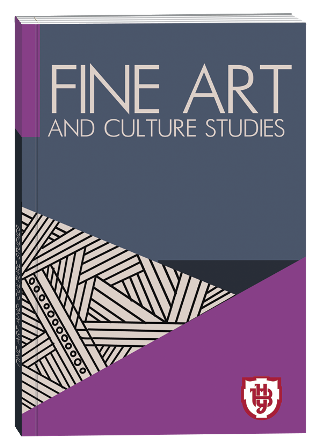MODERN MUSIC TECHNOLOGIES: CONTINUOUS EDUCATION AS A PREREQUISITE FOR PROFESSIONAL SKILLS
DOI:
https://doi.org/10.32782/facs-2023-1-18Keywords:
modern music technologies, music education, continuous education, aging of knowledge, music informaticsAbstract
The article deals with the problems of the need to ensure the continuity of education of a specialist in the field of musical art in the context of the increasing integration of information technology into the art of music. Based on the analysis of the latest trends in the creation of musical works, in particular, the introduction of artificial intelligence and machine learning technologies in the creative process, the problem of the rapid obsolescence of knowledge is emphasized. The aim of the study is to analyze current trends in the art of music in the light of new information technologies and the challenges that these trends bring to the system of music education in the context of the rapid obsolescence of knowledge and the need to enable continuity of education to ensure the competence and skill of a music specialist. The methodological basis of the study is determined by the principles of dialectics (the unity of historical and logical, the relationship of qualitative and quantitative characteristics, the unity of analysis and synthesis, content and form, essence and phenomenon), the doctrine of reality, the continuity of movement and development, unity and connection, interdependence and integrity in the system “technology – education – society”. The novelty of the study lies in the application of the theory of knowledge obsolescence to the socio-humanitarian sphere – in this case, to the art of music. For the first time, in an academic printed article in a Ukrainian edition, the most recent technologies of creating musical works and the implication of this phenomenon for modern music education were considered and conceptual ways of improving the system of continuous musical education in such a landscape are proposed. It is concluded that it is necessary to consider lifelong music education from the standpoint of a systematic approach. At the same time, the informational and methodological support of the system of continuous musical education should be formed on the basis of progressive educational technologies, taking into account the specifics of learning at each stage of the system of continuous musical education.
References
Воєвідко, Л. М. Проблеми сучасної музичної педагогіки у підготовці майбутніх учителів музичного мистецтва. Педагогічна освіта: теорія і практика: Збірник наукових праць. Кам'янець-Подільський національний університет імені Івана Огієнка; Інститут педагогіки НАПН України. Вип. 31 (2-2021). Київ: Міленіум, 2021. C. 208–244.
Маруфенко, О. В. Тенденції розвитку системи неперервної освіти в ХХІ столітті. Актуальні питання мистецької освіти та виховання. 2013. Вип. 1. С. 53–62.
Педагогіка музичного мистецтва, художньої культури та хореографії у контексті інтернаціоналізації освіти. Матеріали Міжнародної науково-практичної конференції (м. Мелітополь, 8–10 листопада 2017 р.) І Відповід. ред. Н.А.Сегеда. – Мелітополь: ФОП Однорог Т.В., 2017. 195 с.
Caramiaux, B., & Donnarumma, M. Artificial Intelligence in Music and Performance. A Subjective Art-Research Inquiry. Handbook of Artificial Intelligence for Music: Foundations, Advanced Approaches, and Developments for Creativity, inPress, HAL Open Science, 2020.
Miranda, E. Handbook of Artificial Intelligence for Music: Foundations, Advanced Approaches, and Developments for Creativity. Berlin: Springer, 2021.
Quan, Y. Applied Research of Artificial Intelligence in Music Education. Northern Music, 2019, 17, P. 38–44.
Patteson, T. Instruments for New Music: Sound, Technology, and Modernism. Oakland: University of California Press, 2015, 250 p.
Smilde, R. (2009). Musicians as Lifelong Learners. In: Alheit, P., von Felden, H. (eds) Lebenslanges Lernen und erziehungswissenschaftliche Biographieforschung. VS Verlag für Sozialwissenschaften. https://doi.org/10.1007/978-3-531-91520-3_10
Smilde, R. Lifelong Learning for Professional Musicians. In: G. McPherson & G. Welch (Eds). The Oxford Handbook of Music Education, Vol. 2., 2012, Oxford University Press.
Sobol, N. Lifelong Learning: Music Adult Education. Continuing Professional Education: Theory and Practice, 2019, Issue 1(58), P. 1–6. https://doi.org/10.28925/1609-8595.2019.1.1722
Strachan, R. Sonic Technologies: Popular music, Digital culture and the Creative Process. New York: Bloomsbury Academic, 2017.
Zhang, J. & Wan, J. A Summary of the Application of Artificial Intelligence in Music Education. Advances in Social Science, Education and Humanities Research, 2019, volume 428, P. 42–44.







